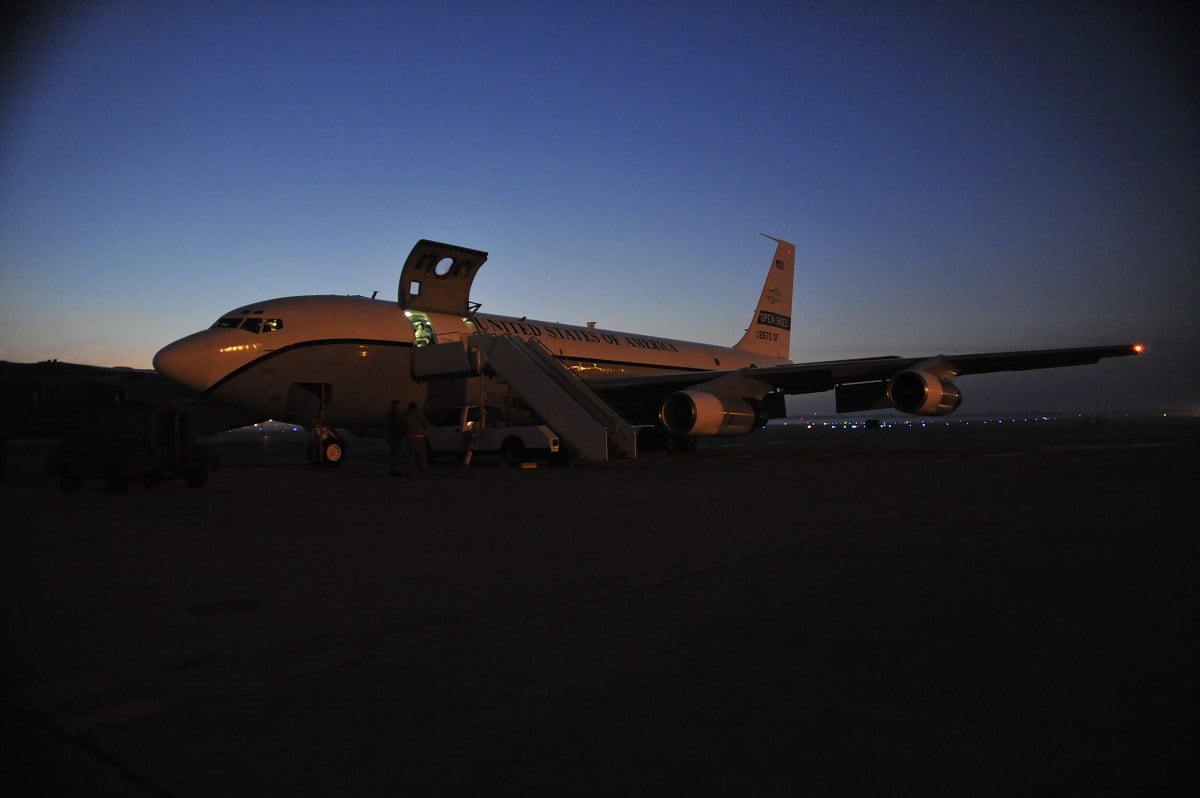WASHINGTON — The U.S. Department of Defense will not fund a replacement for the OC-135 Open Skies aircraft until it is decided if the country will remain in the arms control treaty, Defense Secretary Mark Esper said Wednesday.
“At this point and time, until we make a final decision on the path forward, I’m not prepared to recapitalize aircraft,” Esper told members of the Senate Armed Services Committee. “We’re holding until we get better direction.”
Esper was answering a question from Senate AirLand Subcommittee Chairman Tom Cotton, R-Ark., a noted proponent of leaving the treaty. Cotton said he had heard that a contract for new planes could come as soon as “next month,” which reportedly will no longer happen.
RELATED

The agreement, ratified in 2002, allows mutual reconnaissance flights over its 34 members, including the U.S. and Russia.
Congress last year appropriated $41.5 million to begin replacing the aging Boeing OC-135B aircraft that America uses for its Open Skies flights. The planes, based at Offutt Air Force Base in Nebraska, are of local and jurisdictional interest to Senate Strategic Forces Subcommittee Chairwoman Deb Fischer, R-Neb., who has worked to protect them in the past.
The aging planes have suffered regular mechanical issues that proponents say must be addressed soon to keep the planes going.
“By not recapitalizing the Open Skies aircraft, we are adding risk to our aircrews. The current aircraft are old, have bad maintenance rates and are prone to breakdown in Russia, putting our crews in bad situations where they are harassed by Russian authorities,” said Rep. Don Bacon, R-Neb., a member of the House Armed Services Committee and a former commander of the 55th Wing at Offutt.
In a statement to Defense News, Bacon said that while the U.S. must “pressure” Russia on the treaty, “our allies like the Open Skies Treaty, and if we walk away we’ll create an added wedge between [them and] us. I supported our INF Treaty decision to [leave]. But doing [the] same here will put us in bad light.”
Bacon was referring to the Intermediate-Range Nuclear Forces Treaty, which the U.S. withdrew from in August 2019.
Esper sounded down on the Open Skies treaty, repeating critiques that Russia has made it difficult to view certain locations that the treaty should allow countries to fly over.
“They have been cheating for many years. I raised this at the [NATO] defense ministerial last month,” Esper said. “There are some other issues that we cannot discuss in this session that we should come talk to you about, but I have a lot of concerns” about the way Russia is working the treaty.
Aaron Mehta was deputy editor and senior Pentagon correspondent for Defense News, covering policy, strategy and acquisition at the highest levels of the Defense Department and its international partners.
Joe Gould was the senior Pentagon reporter for Defense News, covering the intersection of national security policy, politics and the defense industry. He had previously served as Congress reporter.





